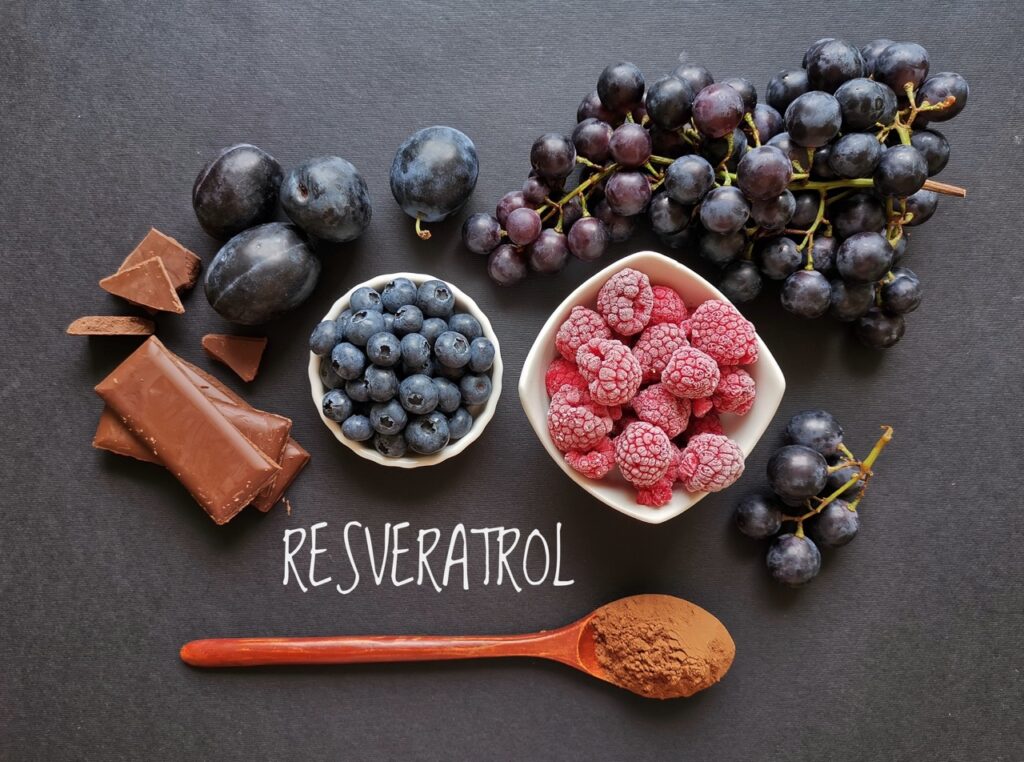The Benefits of Resveratrol: Antioxidants to Promote Your Health
It was joyful news to many wine lovers when researchers in the 1990s found that red wine possessed health benefits.
Scientists had been exploring red wine’s link to a lowered incidence of heart disease, and the first chemical that showed promise was resveratrol.
In the extensive research that followed, resveratrol’s benefits became clearer. Studies have found that it possesses properties protecting against cardiovascular disease, cancer, diabetes, inflammation, Alzheimer’s, and oxidative stress.
Despite all of resveratrol’s therapeutic properties, there could be an issue. It’s difficult to absorb the necessary dose of resveratrol by simply drinking red wine or consuming foods that contain it.
There is, however, another way to quickly consume the required level of resveratrol: a daily supplement.
Before we unpack the pros and cons of a resveratrol supplement, let’s explore resveratrol and discover more about what makes it one of the most promising health-boosting compounds.
What Is Resveratrol?
Resveratrol is a polyphenolic phytoalexin, a substance plants make as part of a defensive response to protect themselves against pathogens, like radiation, funguses, and physical damage.
Resveratrol is also found in many natural foods:
- Grape seeds
- Grape skins
- Apples
- Cranberries
- Raspberries
- Blueberries
- Plums
- Peanuts
- Pistachios
- Soy
- Cocoa
- Dark chocolate
For our health, polyphenols are an antioxidant and are gaining attention as a nutrient to consume when possible because of their positive effects on your health.
How Does Resveratrol Work?
Many of the positive effects of resveratrol are linked to its antioxidant properties that help the body repair itself and protect against inflammation. Just as resveratrol helps plants restore themselves after an attack, resveratrol can support your body’s immune response.
Resveratrol may protect blood vessel lining, helping to prevent damage and clotting. Resveratrol is highly bioactive, exhibiting anti-inflammatory, anticarcinogenic, cardioprotective, vasorelaxant, phytoestrogenic, and neuroprotective properties.
Uses for Resveratrol
Resveratrol was first studied as the potential source of red wine’s cardiovascular benefits. Since then, it has been tested on many therapeutic applications, including cancer support, diabetes, and pain relief. Due to its antioxidant properties, it has vast potential for our health.

Resveratrol for Cardiovascular Disease
The first acknowledged benefit of red wine was that it supported heart health. Evidence from multiple sources shows resveratrol can help decrease cardiovascular diseases by improving key heart health indicators, including fasting glucose levels, triglycerides, and heart rate.
Resveratrol has also been associated with higher good cholesterol (high-density lipoprotein – HDL) and lower bad cholesterol (low-density lipoprotein – LDL) by seemingly reducing the effect of the enzyme (3-hydroxy-3-methylglutaryl coenzyme A reductase) involved in cholesterol production.
Resveratrol also reduces platelet function, in turn, reducing the risk of blood clots that can lodge in the heart, causing cardiac failure and in the brain, causing a stroke.
Resveratrol for Cancer
Resveratrol possesses properties that make it a candidate to prevent and treat several cancers. Research has shown resveratrol to inhibit cancer cell growth by eliminating those cells (apoptosis). Moreover, it was found that resveratrol supports chemotherapy treatments by sensitizing tumors to complementary medications.
Specifically, resveratrol helps protect against breast cancer by protecting the RASSF-1 alpha tumor suppressor gene in women at risk for breast cancer.
Resveratrol for Diabetes
Resveratrol has been found to help people with diabetes, supporting glycemic control and lowering insulin resistance. This makes it a potential treatment for diabetes to combine with conventional therapy.
Resveratrol for Pain
There is evidence that resveratrol may help reduce nerve pain. It has also shown that resveratrol works with other pain-reducing compounds, like meloxicam, to decrease chronic pain from sources like knee osteoarthritis.
How Much Resveratrol Should I Take?
Part of what makes resveratrol attractive as a therapeutic drug is that it has no evident side effects, even in large doses.
The average five-ounce glass of red wine contains approximately 1mg of resveratrol. Doses used in research studies average 5 grams per day, which is 5,000 times more than that in a glass of wine. If you have no pre-existing conditions, you can consume up to 5 grams per day without side effects.
However, a mega-dose like 5 grams is unnecessary to experience the positive effects of resveratrol. Doses of 10mg per day for four weeks were sufficient to benefit individuals with diabetes.
Risks Associated with Resveratrol
While resveratrol is regarded as safe for healthy individuals, there are some increased risks for individuals with pre-existing conditions.
There is a risk of thinning blood, making it less likely to clot. This can be a positive if you’re at risk for clots or negative if you have clotting issues or are taking an anti-clotting medication. There is also the risk of side effects, including nausea, abdominal pain, vomiting, and diarrhea, especially for people with non-alcoholic fatty liver disease.
Resveratrol: A Powerful Protector
As we’ve discussed, resveratrol possesses numerous benefits and protection against illness and disease. Due to its antioxidant and anti-inflammatory properties, resveratrol can also:
- Prevent and/or treat diabetes
- Alleviate osteoarthritic joint pain
- Sharpen memory
Resveratrol could hold promise for other therapeutic uses, which new research will illuminate. Until then, as with any supplement, consult your doctor to check if you are at increased risk for any potential drug interactions.




